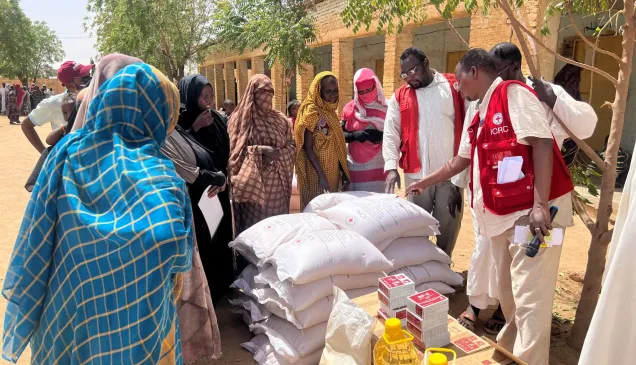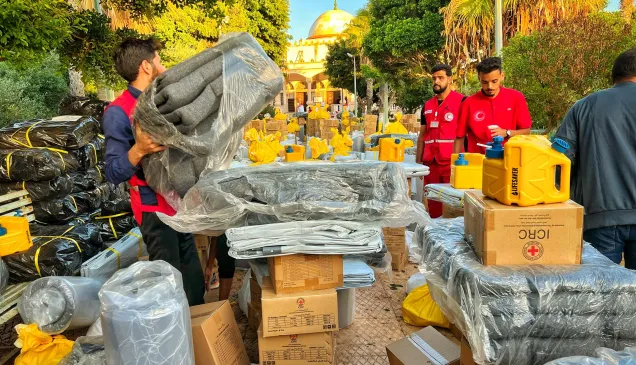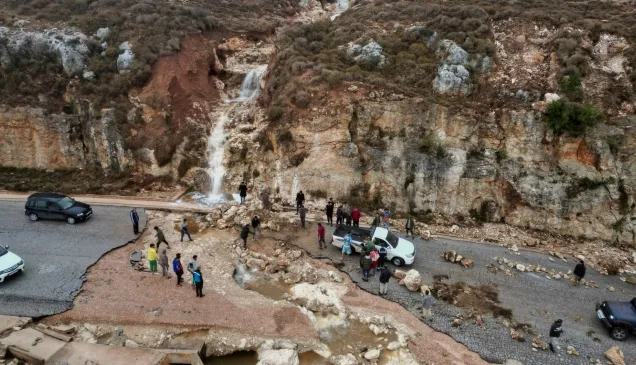A sunset over the vast sand dunes surrounding Ghadames, where the sandy desert meets the rocky feet of the mountains to constitute the borderlines between Libya, Algeria and Tunisia.
Ghadames, known as 'the pearl of the desert', stands in an oasis, around 600 km to the southwest of Tripoli, where a water source in the middle of a desert made it an attraction for permanent settlement since the 4th millennium B.C. It has been at the crossroads of civilizations and cultures, a trading post, a place where the inbound and outbound caravans from the Sahara to the Mediterranean coast rested before continuing their journeys.
Libya: a journey into Ghadames “the pearl of desert” to deliver aid
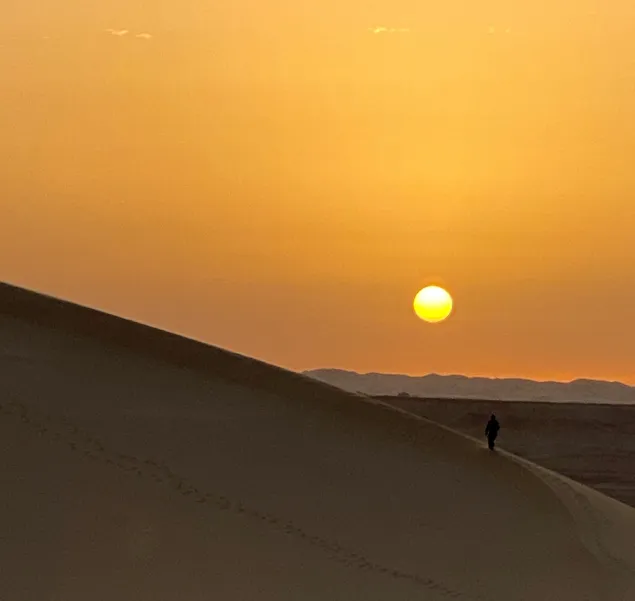
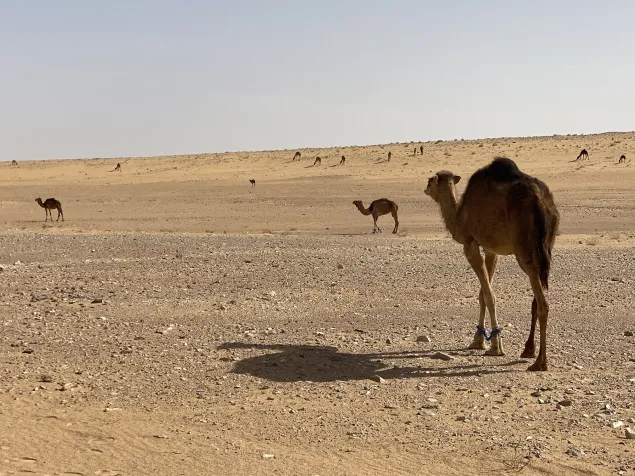
Given the improved security situation, ICRC team visited Ghadames, and the nearby town, Awal, to assess the needs of the population. Less than a month later, the team went back to deliver assistance. Along the road leading to Ghadames, we encountered herds of camels grazing in the desert. These camels are the main source of income for the herders in Ghadames. They spend months in the desert, where they raise camels to later sell in the markets of coastal cities in northwestern Libya.
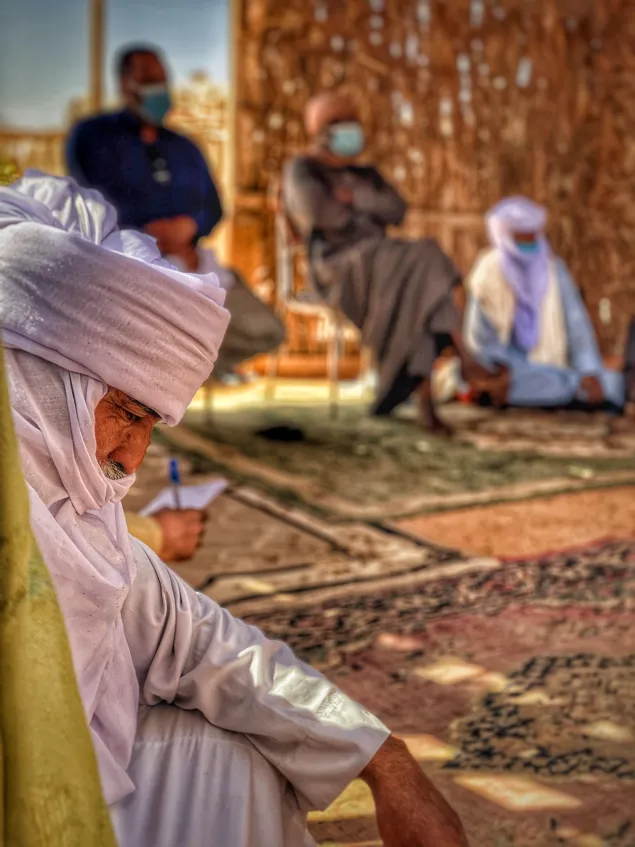
In Awal, a small makeshift town 40 km to the east of Ghadames, we met community leaders. Awal is hosting families who left Ghadames few years ago as a result of inter-communal fighting. Through such meetings, ICRC listens to communities` needs ahead of delivering assistance.
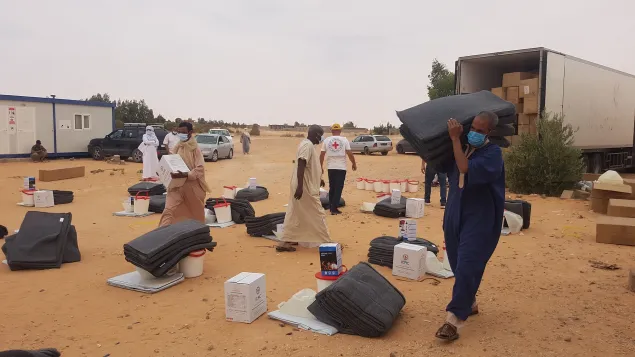
People in Awal live in makeshift structures that lack basic services. ICRC steps in to support Awal families with blankets, cooking utensils, solar lamps, and many other items that help them address some of their unmet needs.
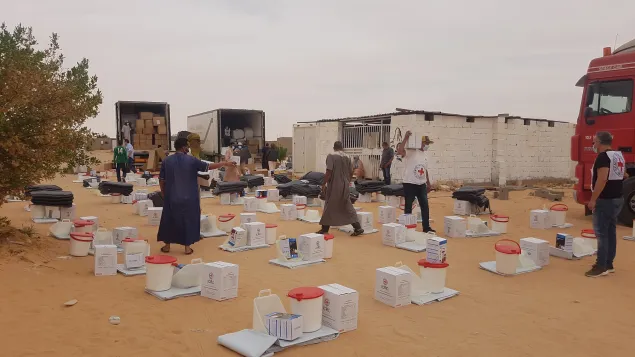
The items provided by ICRC help ease some difficulties the families in Awal face. The solar lamps come in handy as electricity is in short supply. Other items, such as jerry cans, kitchen sets, blankets, sleeping mats, and plastic sheets will help them cover their day-to-day needs.
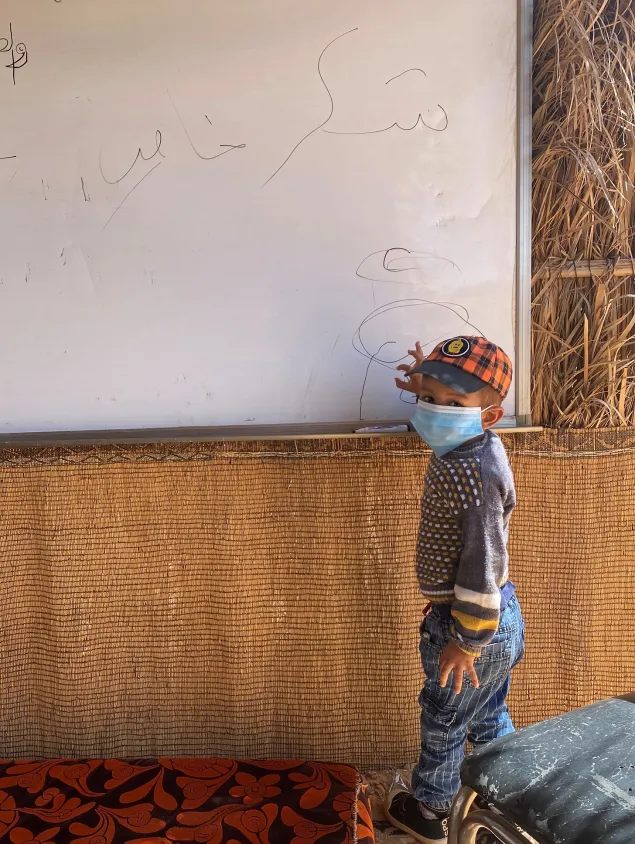
A child writes on a whiteboard in a makeshift school made of palm fronds in the village of Awal, which lacks an official public school.
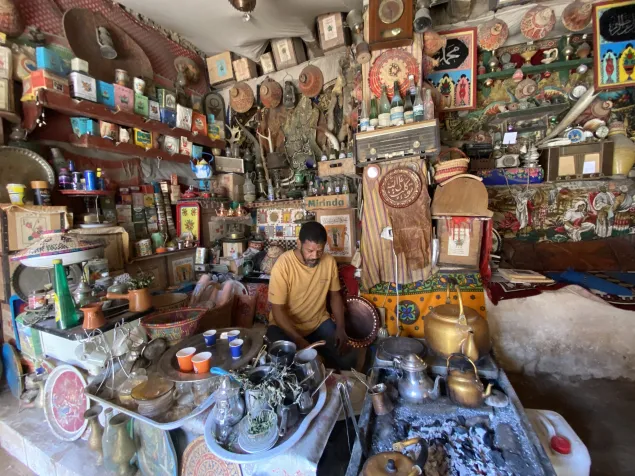
Back in the old city of Ghadames, we met an antique collector inside his unique coffee shop. Pursuing his passion for collecting antiques, he turned the shop into a showroom, exhibiting around 5,000 items. His shop was one of the main stops for tourists visiting the city, but during and after the conflict, his business came to a halt.
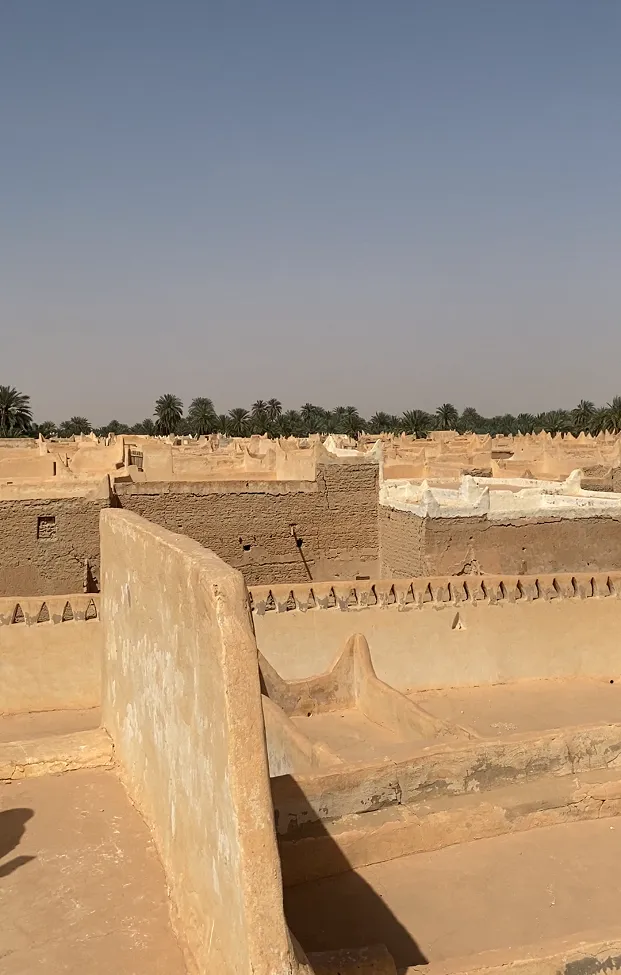
Houses embrace each other in Ghadames, where the connected rooftops are used by women for commuting, while overhanging covered alleys that serve as an underground network of passageways that offer shelter against summer heat. This old part of the town, date from the 13th to 16th centuries, is surrounded by a city wall and has been inscribed in 1986 as a UNESCO World Heritage site, it has also been on the List of World Heritage in Danger since 2016 amongst four other sites in Libya, because of the situation of armed conflict.
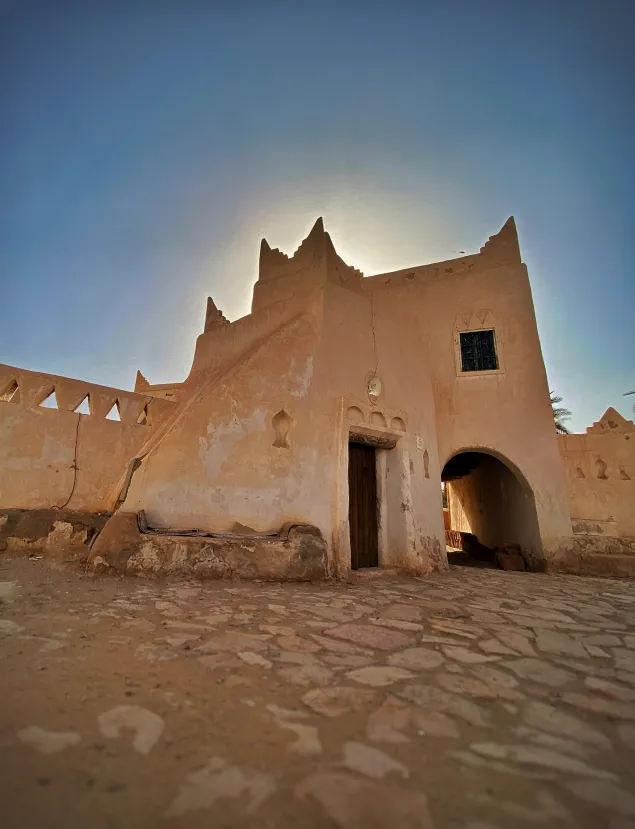
The ancient Koranic school in the old town of Ghadames is well-recognized by all Libyans as it`s printed on the ten dinars bills.
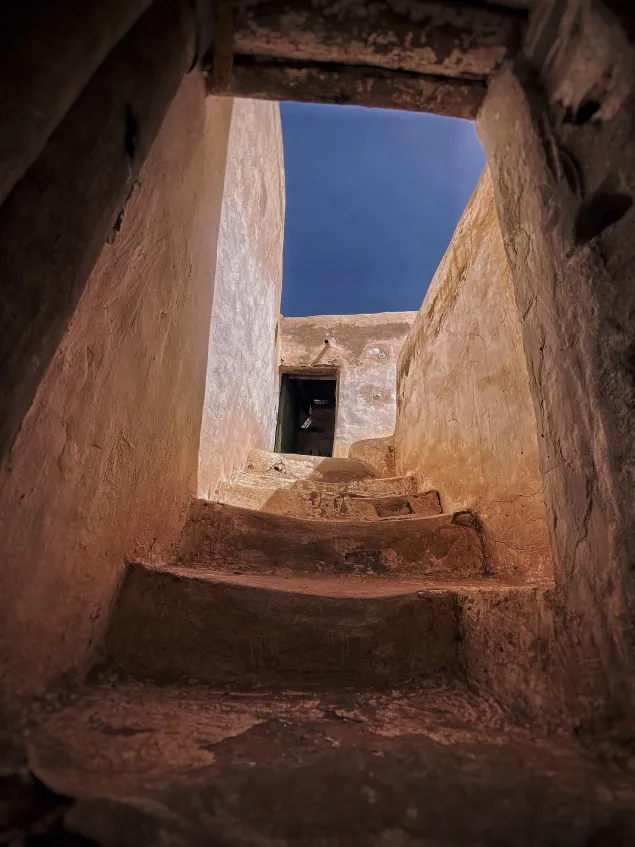
Stairs lead to the rooftops, which are often interconnected between adjacent buildings for women to use as a thoroughfare. Ghadames’s local architecture is characterized by a vertical division of functions: the ground floor is used to store supplies; the upper floor for the family, overhanging to create covered alleys and at the top, open-air terraces reserved for the women.
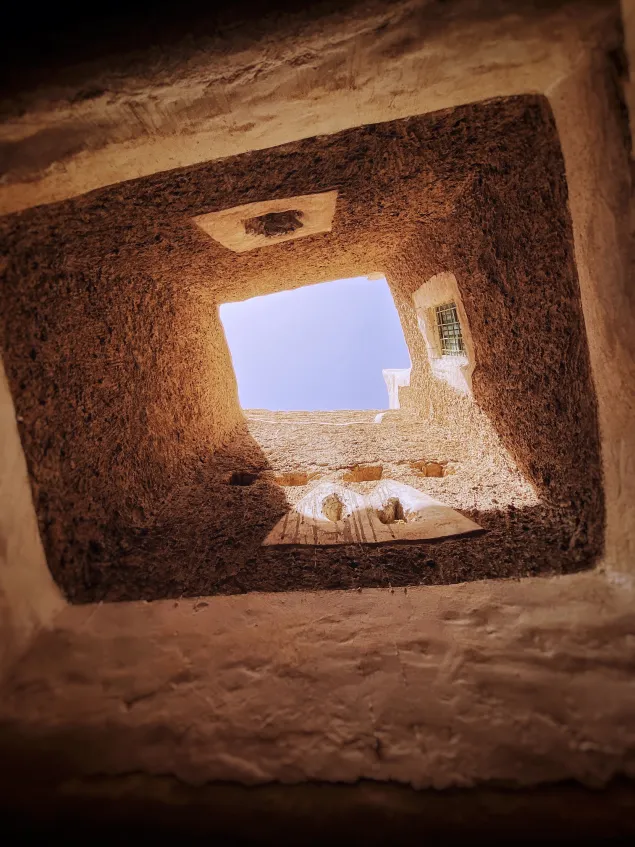
Natural light and ventilation are provided through special shafts that are placed more frequently where use is intensive. Light thus showed in a natural way both the direction to go and the hierarchy of main streets and passageways.
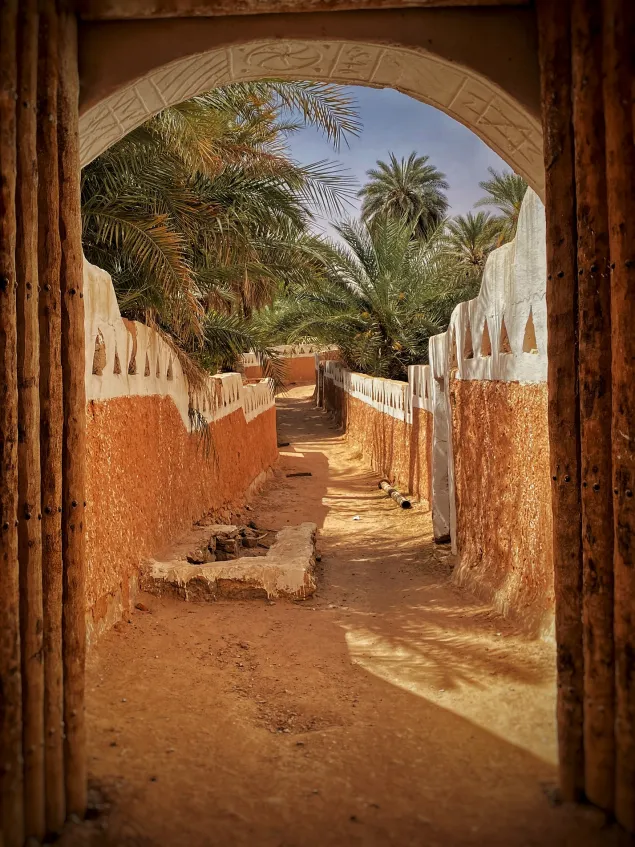
One of Ghadames' gates separate the walled old city from the palm orchards. These gates are closed every day at sunset and open at sunrise. The palm orchards provide a major source of income and contribute to livelihoods for the residents of this remote desert town. They often trade dates with commercial convoys crossing the Sahara.
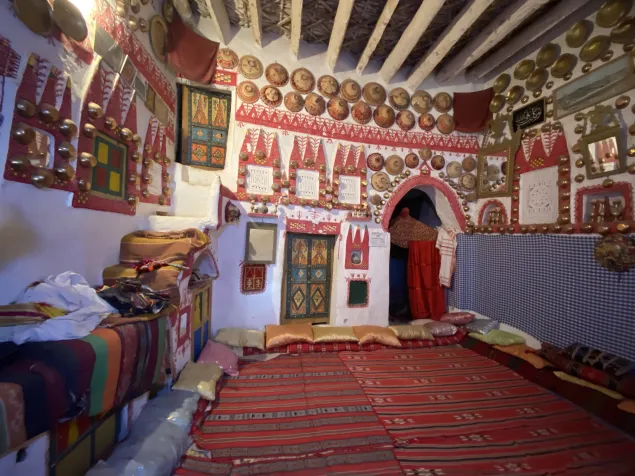
Houses in Ghadames are made of mud, lime, and palm tree trunks, and all interior spaces are beautifully decorated with local handmade traditional crafts. They offered us an intimate feeling of being at home, because of the hospitality of their residents. We are sure that we will soon travel back to Ghadames, to continue working with the communities, with whom we built a mutual relationship of trust.
Six hundred kilometers south west from the Libyan capital Tripoli, lies in the desert the ancient oasis town of Ghadames also known as the “Pearl of the desert”. It has been settled since pre-historic times, but the characteristic buildings of the old town that remain today date from the period of prosperity associated with the booming of trans-Sahara trade from the 13th to 16th centuries. Over 2000 years since it has been first inhabited, this oasis hamlet has seen the sands of time drift through its walls.
Ghadames and its inhabitants have not been directly affected by the last round of fighting in Libya, which lasted from April 2019 to August 2020. However, there remains over 500 displaced families who had to leave Ghadames as a result of past inter-communal fighting. These families are now settled in a nearby locality of Awal.
Recently an ICRC team from its Tripoli Sub-delegation took the long road trip to assess the humanitarian situation in the area. They spent a few days there meeting with authorities and mingling with people to learn more about the impact of conflict and COVID-19 on their lives. Being a very remote area in a conflict affected country has taken its toll on the essential services in Ghadames such as water, sewerage and healthcare, as all of them require attention and investment for repairs and upgradation.
Like the people of the desert around the world, our teams also enjoyed warm hospitality of people of Ghadames and Awal. A few weeks later our teams returned to distribute essential household items for over 500 families in Awal, who hope that one day they can return to their historic town of Ghadames.

